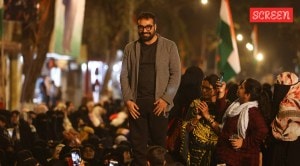Stay updated with the latest - Click here to follow us on Instagram
SC sparks euthanasia debate, seeks UTs, states’ responses
It was in Aruna Shaunbag case in 2011 when the SC had last delivered its verdict on passive euthanasia.
Underlining that the subject of euthanasia involved a mix of “morality, religion and medical science”, the Supreme Court Wednesday re-ignited a country-wide debate on validating euthanasia as it sought responses from all the states and Union Territories on the issue.
A five-judge Constitution bench led by Chief Justice of India R M Lodha decided to widen the scope of the deliberation on the controversial issue even as the Centre opposed it, saying not only the subject was within the domain of the legislature, legalising euthanasia will tantamount to ratifying a kind of suicide.
“We do not accept passive euthanasia. It is one form of suicide and suicide is an offence,” said Attorney General Mukul Rohatgi, adding, “It is a matter for legislature to decide.”
The court, however, maintained that the subject required a broad-based discussion and views of all the stakeholders should be taken into account.
Some general apprehensions of misuse, the court said, could not come in the way where questions related to fundamental rights and issues of life and death. It issued notices to states and Union Territories, asking them to adduce their replies in eight weeks.
It was in Aruna Shaunbag case in 2011 when the SC had last delivered its verdict on passive euthanasia.
The court had then rejected a plea for mercy killing of Shanbaug, a Mumbai nurse who has been living in vegetative state in a hospital for the past 40 years after a rape attack.
While holding that validity of euthanasia was already upheld by a SC judgment of 1996, the court had laid down guidelines to allow “passive euthanasia”.
However, in February this year, another three-judge bench held that that the decision in 1996 did not arrive at a conclusion for validity of euthanasia, be it active or passive. It then referred the case to a larger bench, saying it was extremely important to have a clear enunciation of law in view of inconsistent opinions in its previous judgments.
The Constitution bench, also comprising Justices J S Khehar, J Chelameswar, A K Sikri, and R F Nariman, is hearing a petition by NGO ‘Common Cause’, which has pleaded for incorporating the right to refuse treatment and the right to die with dignity within the right to life under Article 21 of the Constitution.
The court appointed senior advocate and former solicitor general T R Andhyarujina as amicus curiae in the case.








